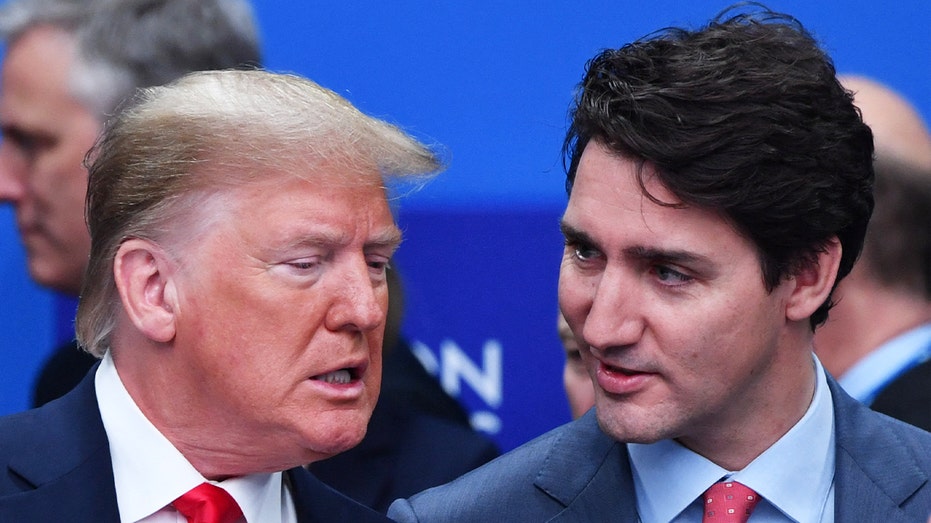
In separate negotiations, Canadian Prime Minister Justin Trudeau and Mexican President Claudia Sheinbaum have agreed with U.S. President Donald Trump to pause planned tariffs for at least a month .
Trump’s tariffs against China are still slated to go into effect on Tuesday. Trump on Monday held off on his tariff threats against Mexico and Canada for 30 days after the two U.S.

neighbors agreed to boost border security efforts. Trump on Saturday had directed that 25% tariffs on most imports from the two American partners — and 10% on Canadian energy products — go into effect at midnight Tuesday. The two nations threatened retaliation of their own, raising the prospects of a broader regional trade war.
In a statement on X, Trudeau said that on a call with Trump he pledged additional cooperation on border security. It follows similar moves by Mexico earlier Monday. “Proposed tariffs will be paused for at least 30 days while we work together,” Trudeau said.
FILE - U.S. President Donald Trump, left, and Canadian Prime Minister Justin Trudeau talk prior to a NATO round table meeting at The Grove hotel and resort in Watford, Hertfordshire, England, Dec.
4, 2019. (AP Photo/Frank Augstein, File) Senate Democrats are highlighting the economic toll that President Donald Trump’s tariffs on goods from Canada and Mexico will have on their constituents as they rallied against his efforts on Monday. Sen.
Maggie Hassan, D-N.H., said consumers in her state are being informed by suppliers that tariffs on home heating oil would be passed on to them.
“This could increase home heating costs in New Hampshire by hundreds of dollars per year,” Hassan said. Senate Democratic leader Chuck Schumer, citing a report from the Budget Lab at Yale University, a policy research center, said that the average American household would see their yearly expenses rise more than $1,200 because of the increased tariffs. “If these tariffs go through, they’ll be felt everywhere, from the grocery store to the gas pump to local businesses, even your upcoming Super Bowl party,” Schumer said.
Cryptocurrency prices took a hit from the prospect of a trade war between the U.S. and its major trading partners, with some well-known digital assets seeing values fall more than 10%.
Bitcoin fell below $100,000 after U.S. President Donald Trump announced plans Saturday to start putting large tariffs on goods from Canada, Mexico and China.
The world’s most popular cryptocurrency fell to about $92,000 Sunday night before rebounding to around $99,000 by Monday morning after Trump announced a pause on the tariffs on Mexican goods. “Mexico will reinforce the northern border with 10,000 members of the National Guard immediately, to stop drug trafficking from Mexico to the United States, in particular fentanyl,” Sheinbaum said in a post on the social platform X. She added that the U.
S. had committed to “work to stop the trafficking of high powered weapons to Mexico.” Mexico and the United States have agreed to suspend the threatened tariffs for one month as Mexico immediately deploys 10,000 members of its National Guard to their shared border to battle drug trafficking, especially fentanyl.
Sheinbaum said that Mexico had requested a call with Trump since Friday. The U.S.
president called at 8 a.m. (Mexico) on Monday.
He and Sheinbaum spoke for more than half an hour. The U.S.
committed to doing more to stop the trafficking of guns into Mexico and both countries have established teams to continue discussing security and trade issues going forward, Sheinbaum said. Trump asked how long she wanted to pause it and she suggested forever, but he said Mexico could have a month to show results. Stay up-to-date on the latest in local and national government and political topics with our newsletter.
.















